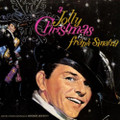 Loading... Please wait...
Loading... Please wait...Categories
- ARTIST
- BIBLES & BOOKS
- **SPECIAL DEALS**
- CHANT
- CHILDREN
- CHRISTMAS
- CONTEMPORARY
- DOWNLOAD MP3s
- DVDs
- ESPANOL MUSICA
- GENERAL CHRISTIAN
- GREETING CARDS
- GIFTS
- INSTRUMENTAL
- INTERNATIONAL
- IRISH
- JEWELRY
- LITURGICAL
- MEDITATION
- OLDIES BUT GOODIES
- PATRIOTIC
- PRAISE AND WORSHIP
- PRAYERS
- ROSARY & DIVINE MERCY CDs
- SEASONAL
- SHEET MUSIC
- TRADITIONAL
- USB DRIVE
- VALLEY ENTERTAINMENT
- WEDDING MUSIC
- A MILLION SPOKES - DVD
Popular Vendors
Our Newsletter
FRANK SINATRA

Frank Sinatra was born in Hoboken, New Jersey, to Italian immigrants Natalina Della (Garaventa), from Northern Italy, and Saverio Antonino Martino Sinatra, a Sicilian boxer, fireman, and bar owner. Growing up on the gritty streets of Hoboken made Sinatra determined to work hard to get ahead. Starting out as a saloon singer in musty little dives (he carried his own P.A. system), he eventually got work as a band singer, first with The Hoboken Four, then with Harry James and then Tommy Dorsey. With the help of George Evans (Sinatra's genius press agent), his image was shaped into that of a street thug and punk who was saved by his first wife, Nancy Barbato Sinatra. In 1942 he started his solo career, instantly finding fame as the king of the bobbysoxers--the young women and girls who were his fans--and becoming the most popular singer of the era among teenage music fans. About that time his film career was also starting in earnest, and after appearances in a few small films, he struck box-office gold with a lead role in Anchors Aweigh (1945) with Gene Kelly, a Best Picture nominee at the 1946 Academy Awards. Sinatra was awarded a special Oscar for his part in a short film that spoke out against intolerance, The House I Live In (1945). His career on a high, Sinatra went from strength to strength on record, stage and screen, peaking in 1949, once again with Gene Kelly, in the MGM musical On the Town (1949) and Take Me Out to the Ball Game (1949). A controversial public affair with screen siren Ava Gardner broke up his marriage to Nancy Barbato and did his career little good, and his record sales dwindled. He continued to act, although in lesser films such as Meet Danny Wilson (1951), and a vocal cord hemorrhage all but ended his career. He fought back, though, finally securing a role he desperately wanted--Maggio in From Here to Eternity (1953). He won an Oscar for best supporting actor and followed this with a scintillating performance as a cold-blooded assassin hired to kill the US President in Suddenly (1954). Arguably a career-best performance--garnering him an Academy Award nomination for Best Actor--was his role as a pathetic heroin addict in the powerful drama The Man with the Golden Arm (1955).
He died on 14 May 1998




 All prices are in
All prices are in